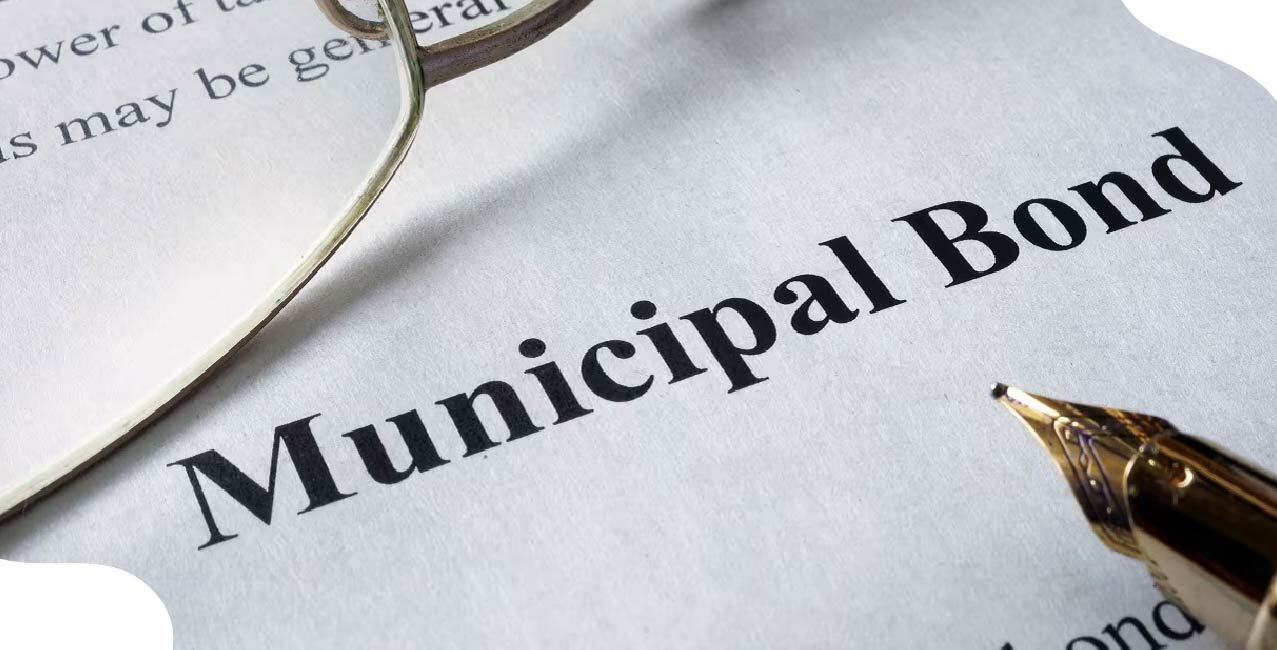NHAI Bonds Explained: What Every Investor Needs to Know

Check Your Loan Eligibility Now
By continuing, you agree to LoansJagat's Credit Report Terms of Use, Terms and Conditions, Privacy Policy, and authorize contact via Call, SMS, Email, or WhatsApp
You sell a property and receive ₹50 lakhs. Instead of paying heavy capital gains tax, you invest in NHAI capital gain bonds. The bonds offer a fixed interest rate of 5.25%. Let’s calculate how this works:
Investment: ₹50,00,000
Interest Rate: 5.25%
Annual Interest: ₹50,00,000 × 5.25% = ₹2,62,500
By investing, you not only save on taxes but also secure a steady income. According to The Times of India, the National Highways Infra Trust (NHAI InvIT) recently issued Non-Convertible Debentures (NCDs) with an effective yield of 8.05%, which is higher than most Fixed Deposit instruments available in the market.
Let’s explore why they are a preferred choice for many.
Why Are NHAI Bonds Worth Considering?
NHAI bonds are among the safest investment options available. They are backed by the National Highways Authority of India, ensuring stability.
Firstly, they are a low-risk option because the government supports them. Your money is secure even during volatile market conditions.
Secondly, these bonds are a fantastic way to save on taxes. If you have sold a property, the capital gains tax can be avoided by investing in NHAI capital gain bonds.
The returns from these bonds are predictable, though lower than equities. For example, Raj, an IT professional, sold his family land for ₹1 crore. Instead of paying ₹ 20 lakh as tax, he invested ₹ 50 lakh in NHAI capital gain bonds. He saved on tax and now earns a stable return annually.
This reliability makes NHAI bonds appealing to those who want peace of mind while earning consistent returns.
Different Types of NHAI Bonds
NHAI offers different types of bonds, each with unique benefits.
The first type is the NHAI capital gain bonds, designed for those looking to save taxes after selling a property. These bonds help you avoid long-term capital gains tax under Section 54EC of the Income Tax Act.
The second type is the NHAI tax-free bonds, which offer interest income exempt from tax. These are ideal for individuals in higher tax brackets. The national highway bonds are another variant, where you pay no tax on the interest earned.
For instance, if you invest ₹ 50 lakh in NHAI tax-free bonds offering a 6% interest rate, you earn ₹ 3 lakh annually without paying tax. Over 10 years, this amounts to ₹30 lakh, completely tax-free.
Choosing the right type depends on your financial goals.
Different Types of NHAI Bonds
NHAI offers several bond options. Let’s explore.
NHAI Capital Gain Bonds: Perfect for those selling property. Under Section 54EC, you can invest up to ₹ 50 lakh to save on taxes.
NHAI Tax-Free Bonds: No tax on interest earnings. Best for those in high-income tax brackets.
National Highway Bonds Tax-Free: Another name for tax-free bonds but worth mentioning for clarity.
Here’s how they compare:
So, which one suits your needs?
Read More - Complete Guide to IRFC Bonds
Steps to Buy NHAI Bonds
Investing in NHAI bonds is straightforward.
Here's how to buy NHAI bonds in simple steps:
Check the allotment status of NHAI bonds to see if they are available.
Visit a public or private sector bank that offers these bonds.
Apply online. Fill in the required forms and upload necessary documents like your PAN card, Aadhaar card, and proof of property sale.
After applying, wait for an allotment letter. Keep this letter safe for your records.
By following these steps, you can smoothly invest in NHAI bonds.
How Do Returns from NHAI Bonds Compare?
Let’s understand returns with a practical example. Suppose you invest ₹ 20 lakh in NHAI tax-free bonds at a 6% interest rate.
Investment: ₹ 20,00,000
Interest Rate: 6%
Annual Return: ₹ 20,00,000 × 6% = ₹ 1,20,000
Over a tenure of 10 years, you earn ₹ 12 lakh without paying any tax. Now, compare this with a fixed deposit offering the same interest rate but taxed at 30%. Your net return on a fixed deposit would be significantly lower.
This makes NHAI tax-free bonds a superior choice for individuals in higher tax brackets.
Who Should Invest in NHAI Bonds?
NHAI bonds aren’t for everyone, but they are ideal for specific groups. Property sellers benefit the most because capital gains from NHAI bonds allow them to save on taxes. Retirees looking for safe and steady returns can rely on these bonds to supplement their income.
High-income earners should also consider these bonds, especially the national highway bond tax-free option, as it reduces their tax burden while providing consistent returns.
For example, Ramesh, a retired teacher, invested ₹30 lakh in NHAI tax-free bonds. With an annual tax-free income of ₹1,80,000, he comfortably manages his expenses.
Mistakes to Avoid When Investing in NHAI Bonds
A common mistake is overlooking the lock-in period. The capital gain bonds have a five-year lock-in period, during which your money cannot be withdrawn. Ensure you don’t need liquidity during this time.
Another mistake is failing to verify the allotment status of NHAI bonds. Many investors miss out on these bonds due to late applications. Finally, incomplete documentation can delay or even reject your application. Double-check your forms and supporting documents before submission.
Key Benefits of NHAI Bonds
The primary benefit of capital gain bonds of NHAI is tax savings. By investing in these bonds, you can save up to ₹10 lakh in taxes.
Additionally, these bonds offer reliable and fixed returns, making them an excellent choice for risk-averse investors.
Some variants, like the national highway bonds tax-free, offer tax exemptions on the interest earned. This is particularly beneficial for individuals in high-income brackets.
Most importantly, these bonds are backed by the government, ensuring your investment remains secure.
Also Read – Bond Ratings and Their Importance
Factors to Consider Before Investing
Before you decide to invest in NHAI bonds, compare their interest rate with other fixed-income instruments. This will help you determine if the returns are competitive.
The lock-in period is another crucial factor. Capital gain bonds require a five-year commitment, so ensure you can manage without this money for that duration. Lastly, evaluate the tax benefits. Understand whether the bond helps save on interest income tax or capital gains tax.
Proper planning ensures you maximise the benefits of investing in these bonds.
Alternative Options
While NHAI bonds are popular, investors can also consider other capital gain bonds:
REC Capital Gain Bonds: Issued by the Rural Electrification Corporation, these bonds offer similar benefits to NHAI bonds.
PFC Capital Gain Bonds: Issued by the Power Finance Corporation, these bonds also provide tax benefits under Section 54EC4.
Conclusion: Should You Invest in NHAI Bonds?
NHAI bonds are a secure and efficient way to save taxes and earn steady returns. They are perfect for property sellers, retirees, and high-income earners. Backed by the government, they combine safety with predictability.
However, they are not without limitations. The lock-in period and relatively low interest rates may not suit everyone. Assess your financial goals before investing.
So, what do you think? Are NHAI bonds the right investment for you?
FAQs About NHAI Bonds
1. What is the interest rate on NHAI bonds?
The NHAI bonds interest rate is currently 5.25% for capital gain bonds.
2. Are NHAI tax-free bonds still available?
Yes, but availability depends on allotment status of NHAI bonds.
3. Can I sell NHAI bonds before maturity?
No, capital gain bonds of NHAI cannot be sold before maturity.
4. How much can I invest in NHAI capital gain bonds?
The maximum limit is ₹50 lakh per financial year.
About the author

LoansJagat Team
Contributor‘Simplify Finance for Everyone.’ This is the common goal of our team, as we try to explain any topic with relatable examples. From personal to business finance, managing EMIs to becoming debt-free, we do extensive research on each and every parameter, so you don’t have to. Scroll up and have a look at what 15+ years of experience in the BFSI sector looks like.
Subscribe Now
Related Blog Post

What are Municipal Bonds – Tax-free Debt Instruments By Local Governments

What are Junk Bonds – High-Yield Bonds and Their Risks

What Is Corporate Bond – Features, Types, And Risk Factors
Recent Blogs
Contents
Quick Apply Loan
Consolidate your debts into one easy EMI.
Takes less than 2 minutes. No paperwork.
10 Lakhs+
Trusted Customers
2000 Cr+
Loans Disbursed
4.7/5
Google Reviews
20+
Banks & NBFCs Offers
Other services mentioned in this article
Business Loan without Security





